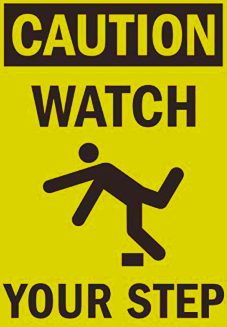
24 Sep Work Related Travel and Tradies: Are You Sure You Can Claim That?
As a rule, travel from your home to your workplace is not allowed as a tax deduction because it constitutes a “private expense”. There are some specific situations when you may be entitled to claim the cost of that travel though. One of those exceptions relates to carrying bulky tools. For tradies, this can mean the costs of running your ute between home and the job site can reduce the tax you pay. There are conditions attached to making a claim for carrying bulky tools and the ATO is getting much better at removing claims they consider too high.
These rules apply to employee’s, contractors, and self-employed tradies. The same rules also apply if you are travelling a couple of miles down the road or flying across the country.
Tradies and Bulky Tools: What You Need to Know
To beat the taxman and maximise your tax deduction for your travel when carrying bulky tools, the following conditions MUST be met:
- your employer MUST REQUIRE you to transport the equipment for work.
The ATO will want ask you to provide proof. I suggest getting an email from your supervisor or foreman confirming they require you to provide your own tools.
Merely choosing to use your own tools is not sufficient even if your tools are the best quality.
- the equipment MUST BE essential to earning your income.
- there’s MUST NOT be any secure area to store the equipment at the work location.
This one is a favourite of the ATO because nobody seems to think about it when preparing their tax return. Once again, an email from your foreman or supervisor advising no tools can be securely stored on site is a perfect defence to your claim.
- the equipment MUST BE bulky and difficult to transport.
Take photo’s and measurements. The ATO suggest your tools should weigh a minimum of 20kg’s but that is not law. If you can carry your tools in a canvas bag or portable tool box, even if they weigh 20kg’s then then you might not get any joy from the ATO.
Creative (Disallowed) Reasons for Claiming Home to Work Travel?
We like to get our client’s the best outcome, but the following are common myths we hear for claiming travel between home and work:
- You check your emails or read some building plans before going to work. Your home is not a workplace (see below).
- You do minor work-related tasks – Picking up the mail or grabbing some milk for the site esky on the way to work is not enough.
- You use your car for work during the day. In this case you can claim the travel between workplaces though, so keep records.
- You drive between your home and your workplace more than once a day.
- You are on call and may get called in to work.
- There is no public transport near where you work.
- You work outside normal business hours.
- You get paid commission so are running a business from home.
And one of my favourites:
- The tools my boss provides are crap so I have to use my own tools.
Yes, they may be bulky and you may use them for work. But, if you employer provides tools, no matter how rubbish they are, then it is your choice to use your own tools. Choosing to use your own tools is not a condition of your employment.
Beware, because I have often seen the ATO regularly ask the “choice” question when clients get audited. They will even ask for copies of employment contracts or other documented evidence.
When Can You Claim Your Home as a Workplace?
Apart from bulky tools you may be entitled to claim travel between home and work if your home is also your workplace. You can only claim your home as a workplace if your work requires you to travel from place to place or you have shifting places of work. This means you will need to justify your claim in terms of the following factors:
- Travel is critical to you doing your work.
- You may be an engineer or supervisor and travel to multiple work sites throughout the day.
- You continually travel from one work site to another.
- Your home is your base of operations.
- Maybe you work for an interstate company that doesn’t have a facility in your town or you only go into the office occasionally to file paperwork or for meetings.
- You are often uncertain of the location of your work site.
- Construction plans often get varied and you have to be there to sign it off.
- You are paid a travel allowance that is taxable to you.
Only in these limited situations that do not rely on bulky tools can you make a claim for your travel between home and your work.
What Records Should You Keep?
Like everything with the ATO, your records will often prove the difference between having your claim allowed or dismissed. At the bare minimum, you should keep:
- A diary of your travel.
- Your vehicle mileage at 30 June each year.
- A copy of your Employment Contract or a letter/email from your employer advising:
- it is a term of your employment to use your own tools AND there is no secure storage at your work; or
- you are required to work from home as your base of work.
- Pictures and measurements of your bulky tools.
- If you travel more than 5,000 k’s a year then you will also need to keep a logbook and copies of all receipts for your vehicle cost. Without those documents your claim will be limited $3,400 per vehicle* (5,000 k’s at the current ATO rate of $0.68c/km).
- If you change vehicles during the year or have two vehicles you use then you can claim up to 5,000 k’s per vehicle.
Some Practical Examples:
You work FIFO and take your own tools interstate
Bob is a builder living on the Sunshine Coast in Queensland but works for a mining company based in NSW. He fly’s to work on 9/5 roster, pays his own travel costs, and doesn’t get paid until he arrives at the job site in NSW. Bob’s employer provides most tools but has a written agreement with his employer to provide his own laser level and some other digital equipment because there is no secure storage on the work site. He carries the equipment in a canvas bag which he checks in with his usual luggage allowance.
Bob want’s to claim his travel costs because he transports his level and equipment with him every trip.
No: Bob is required to transport his tools because there is no secure storage and his employer requires him to supply his own technical equipment. Where Bob fails is the “bulky” definition. This is subjective but a laser level measures around 200 x 200 x 200 mm plus tripod and receiver. As a general rule, anything than can be carried in a canvas bag would not be bulky especially if it is checked in as normal luggage.
You take most of your tools in a large metal toolbox
In the same situation above but instead of checking the tools in Bob has a large metal toolbox, say 1,100 x 500 x 500 containg most of his own tools.
Yes: If Bob had a large metal tool box, paid oversize charges to transport it, and had the same letter from his employer stating he was required to provide his own tools, then he should be entitled to claim the costs of his travel from home to work, including his airfares and car parking.
You have a second job
Jenny is an apprentice electrician. She drives her car from her construction job to her second job at a gym. After finishing at the gym, Jenny goes directly home.
Yes: Jenny can claim the car expenses from her normal workplace to her second job but she cannot claim the cost of travelling home from her second job (unless she is transporting bulky tools per above).
You have an afternoon meeting at another office then go home
James is a draftsman and is required to attend meetings at his employer’s other office. James drives his car to the other office for the meeting then goes home afterwards. Yes: James can claim the cost of the travel between offices AND the cost of the trip home because he is required to work at an alternative location.
Conclusion
If you want to claim your travel costs, then understand there are specific requirements that must be met and you may need to justify your claim in terms of the rules outlined above. It is not enough to simply choose to use or transport your own tools, even if they are bulky but there are things that can be done to make sure your claim is not denied. If you want more information give our office a call on (07) 54489600 or CLICK HERE to drop us a message.


